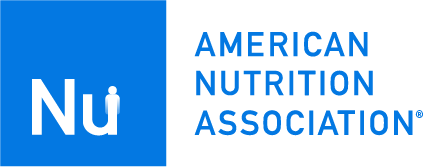Code of Ethics
- Home
- Code of Ethics
Preamble
The Board for Certification of Nutrition Specialists (BCNS) is a nonprofit credentialing board for nutrition specialists. The Certified Nutrition Specialist (CNS) is formal recognition for nutrition care professionals who have met rigorous and demanding eligibility requirements, including postgraduate education, subsequent supervised practice in professional nutrition, and demonstration of a depth and breadth of knowledge appropriate for effective practice in the profession of nutrition.
The ethical obligations of the nutrition science professional include a commitment to continuous growth and development, professionalism across disciplines, and the highest standards of patient/client nutrition care. This serves to clarify to current and future certificants, and to those served by certificants, the nature of the ethical responsibilities held in common by its certificants. All individuals certified by the Board for Certification of Nutrition Specialists are required to adhere to the Code of Ethics.
Purpose of the Board for Certification of Nutrition Specialists Code of Ethics
The nutrition science professional has an obligation to demonstrate actions that reflect values, ethical principles, and ethical guidelines. The Board for Certification of Nutrition Specialists (BCNS) Code of Ethics sets forth these values and principles to guide conduct. It clarifies the social contract that dictates the profession’s responsibilities to the patient/client, the public, and the profession; and upholds the fundamental principle that the paramount purpose of the nutrition professional’s services shall be to benefit the patient/client.
Code of Ethics, Principles, and Interpretative Guidelines
The following ethical principles are based on the core values of the Board for Certification of Nutrition Specialists and apply to all BCNS certificants. Guidelines included for each ethical principle are a non-exhaustive list of behaviors and situations that can help to clarify the principle. They are not meant to be a comprehensive list of all situations that can occur.
A CNS and CNS Candidate agree to adhere to the following Code of Ethics, Principles, and Interpretative Guidelines:
Foremost, do no harm. A CNS consciously avoids harmful actions or omissions, embodies high ethical standards, and adheres to all applicable local, state, and federal laws and regulations in the choices he or she makes.
A CNS places service and the health and welfare of persons before self-interest and conducts oneself in the practice of the profession so as to bring honor to oneself, peers, and to the nutrition science profession.
A CNS respects and understands that he or she is a health care professional dedicated to providing competent and scientifically sound nutritional and other appropriate care within their own scope of practice, with compassion and respect for human dignity and rights.
A CNS employs their best good faith efforts to provide unbiased information and facilitate understanding to enable the patient/client to make informed choices in regard to all recommended plans of care or assessment. The patient/ client should make their own determination on such recommendations and assessment. A CNS shall not mislead patients into false or unjustified expectations of favorable results of treatment.
A CNS upholds the standards of professionalism and is honest in all professional interactions. A nutrition science professional will additionally be knowledgeable about established policies and procedures for handling concerns about unethical behavior. These include policies and procedures created by BCNS, licensing and regulatory bodies, employers, supervisors, agencies, and other professional organizations (see BCNS Disciplinary and Complaint Policy).
A CNS upholds the standards of professionalism and commits to performing their duties competently, safely, and ethically. Drug and alcohol abuse will not be tolerated by the BCNS. Any person discovered using alcohol or drugs in a professional practice would be subject to discipline, including certification revocation. (See BCNS Disciplinary and Complaint Policy.)
A CNS respects the rights of patients, clients, colleagues, and other health professionals, and safeguards patient/client confidence, trust, and privacy in accordance with the law. This includes, but is not necessarily limited to, being familiar with and carrying out all HIPAA compliance requirements.
A CNS commits to the study, application, and advancement of scientific knowledge, continues to seek nutritional and related health education, makes relevant nutrition science information available to patients/clients, colleagues, and the public, obtains consultation, and recognizes the talents of other health professionals when indicated, referring patients/clients to appropriate healthcare providers when their care requires services outside the scope of practice of a CNS.
A CNS values their responsibility to participate in activities contributing to the improvement of the community and the betterment of public health.
A CNS truthfully and accurately states one’s credentials, professional education, and experiences. CNS may be used as a postnominal credential. The Board for Certification of Nutrition Specialists does not recognize “board-eligible,” and such nomenclature is to be avoided.
A CNS and CNS Candidate agree to adhere to the following Code of Conduct:
A CNS should be alert to and avoid conflicts of interest that interfere with the exercise of professional discretion and impartial judgment. A CNS should inform clients when a real or potential conflict of interest arises and take reasonable steps to resolve the issue in a manner that makes the clients’ interests primary and protects clients’ interests to the greatest extent possible. In some cases, protecting clients’ interests may require termination of the professional relationship with proper referral of the client.
A CNS should not take unfair advantage of any professional relationship or exploit others to further their personal, religious, political, or business interests.
A CNS should not engage in dual or multiple relationships with clients or former clients in which there is a risk of exploitation or potential harm to the client. In instances when dual or multiple relationships are unavoidable, A CNS should take steps to protect clients and are responsible for setting clear, appropriate, and culturally sensitive boundaries. (Dual or multiple relationships occur when a CNS relates to clients in more than one relationship, whether professional, social, or business. Dual or multiple relationships can occur simultaneously or consecutively.)
